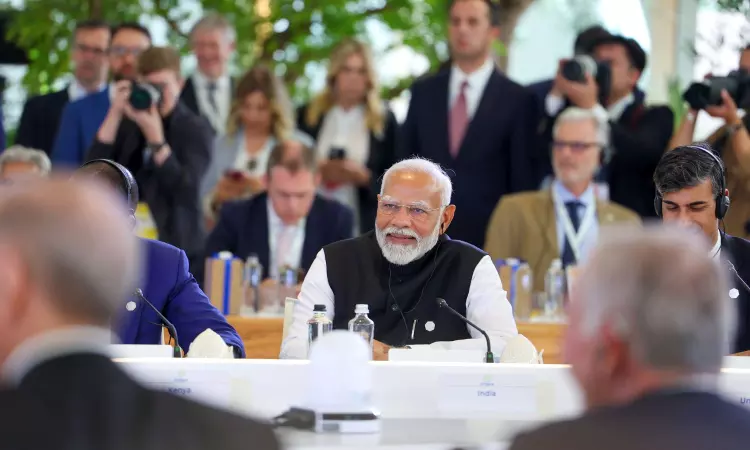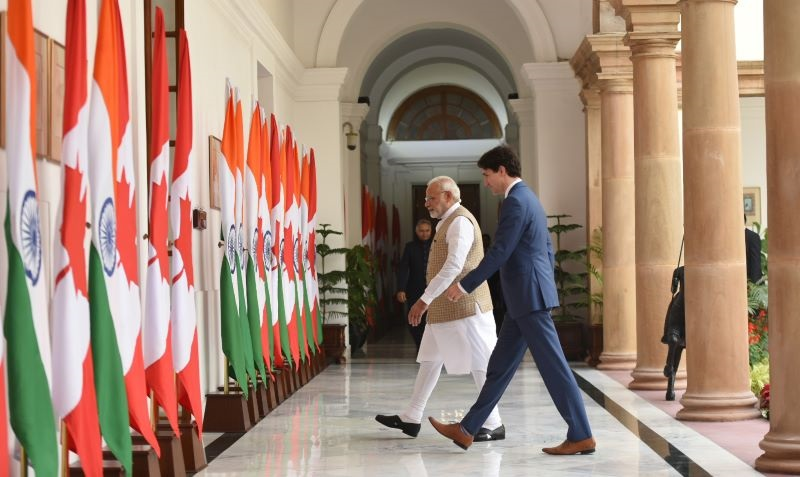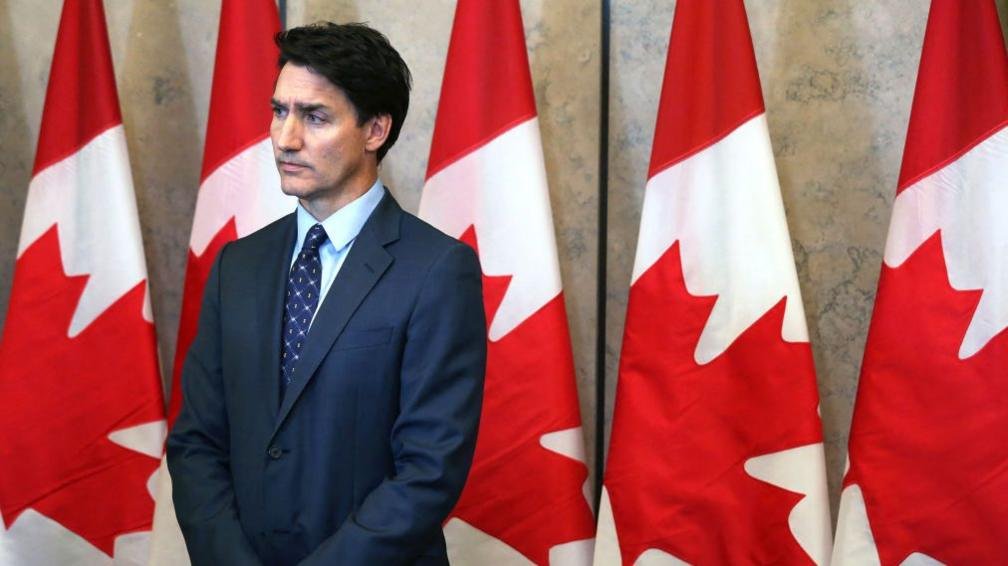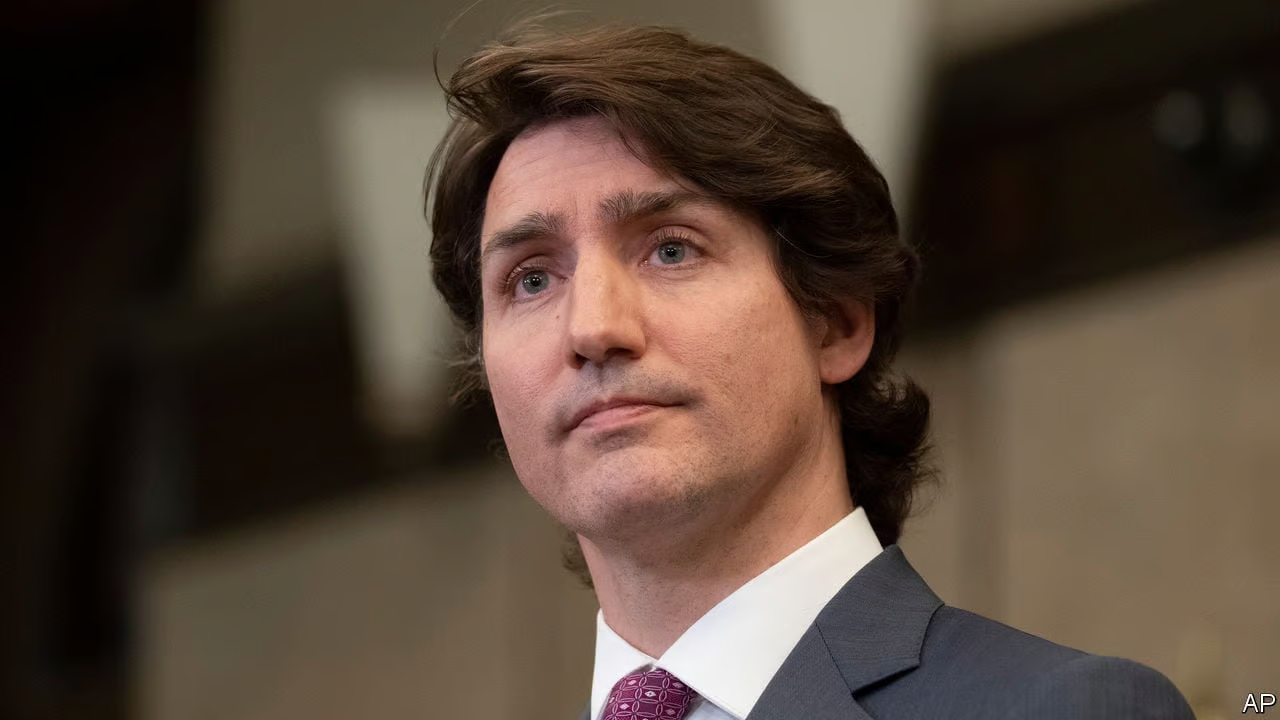In recent months, the India-Canada Relations have taken a sharp turn for the worse, with the Indian government placing the blame squarely on Canadian Prime Minister Justin Trudeau.
The allegations that India was involved in the killing of Khalistani terrorist Hardeep Singh Nijjar have been at the heart of this controversy.
Justin Trudeau’s admission that his government lacks “hard evidentiary proof” in support of these allegations has only fueled India’s stance that Canada’s approach to this matter has been reckless and unfounded.
This situation has led to significant diplomatic fallout, which India claims has been exacerbated by Justin Trudeau’s actions.
Trudeau’s Allegations and Their Fallout
The crisis in India-Canada relations began in earnest when Canadian Prime Minister Justin Trudeau stood before the Canadian Parliament and made the explosive claim that India had a role in the killing of Hardeep Singh Nijjar, a Khalistani terrorist designated by India’s National Investigation Agency (NIA).
Nijjar was shot dead outside a Gurdwara in Surrey, Canada, in June 2023, and his death quickly became the focus of international attention. Justin Trudeau alleged that there were “credible allegations” linking India to the assassination, a claim that was met with immediate and sharp denials from New Delhi.
Our response to media queries regarding PM of Canada's deposition at the Commission of Inquiry: https://t.co/JI4qE3YK39 pic.twitter.com/1W8mel5DJe
— Randhir Jaiswal (@MEAIndia) October 16, 2024
India’s Ministry of External Affairs (MEA) was swift in its response, branding the allegations as “absurd” and “motivated.” The Indian government accused Canada of harboring extremist elements and anti-India forces within its borders, including groups advocating for the creation of an independent Khalistan.
Read : India Expels Six Canadian Diplomats After Withdrawing Indian Envoy to Canada
India has long expressed concern over the activities of such groups in Canada, and Nijjar was a central figure in this movement, with his links to terrorist activities being well-documented by Indian authorities.
Read : Canada Will Host Next G7 Summit in 2025: Will India Be Invited?
The diplomatic row escalated when Canada, based on Justin Trudeau’s accusations, labeled India’s High Commissioner and other diplomats as “persons of interest” in the investigation into Nijjar’s death.
This act of targeting Indian diplomats marked a significant low in bilateral relations, leading to a series of retaliatory measures from India. New Delhi expelled six Canadian diplomats and summoned Canada’s Charge d’Affaires in India, Stewart Wheeler, to convey its strong disapproval.
Furthermore, India decided to withdraw its High Commissioner to Canada, Sanjay Kumar Verma, signaling the seriousness with which it viewed the situation.
Justin Trudeau’s Admission of Lack of Evidence
The most recent development in this ongoing diplomatic spat came when Justin Trudeau admitted that Canada had not provided India with “hard evidentiary proof” regarding the allegations.
During his testimony before Canada’s foreign interference inquiry, Trudeau acknowledged that India had been requesting evidence to support the claims, but Canada had only offered intelligence, not concrete proof.
This admission from Trudeau has been seen by many as a vindication of India’s position. From the outset, India has maintained that no evidence was ever presented to substantiate the serious accusations leveled against it.

According to the MEA’s spokesperson Randhir Jaiswal, Trudeau’s latest remarks confirm what India has consistently argued. Jaiswal stated, “What we have heard today only confirms what we have been saying consistently all along—Canada has presented us no evidence whatsoever in support of the serious allegations that it has chosen to level against India and Indian diplomats.”
The Indian government has made it clear that the responsibility for the damage done to bilateral relations rests solely with Justin Trudeau. His “cavalier behavior,” as described by Jaiswal, has been blamed for dragging India and Canada into this diplomatic quagmire. The MEA’s firm stance has been that Canada’s actions were based on unfounded claims, and the repercussions have been entirely avoidable.
Impact on India-Canada Relations
The deterioration of relations between India and Canada has far-reaching implications. As two democratic nations with strong economic, cultural, and people-to-people ties, the strain in diplomatic relations affects not only political interactions but also the broader relationship between their citizens.
The Indian diaspora in Canada is one of the largest in the world, and both countries have historically maintained a friendly and cooperative stance. However, the ongoing tensions have threatened to unravel years of diplomatic goodwill.
India’s concerns over Canada’s harboring of Khalistani extremists are not new. For years, New Delhi has raised the issue of anti-India separatist groups using Canadian soil to promote their agenda.
The rise of the Khalistan movement in Canada has been a point of contention between the two nations, with India accusing Canada of not doing enough to curb the activities of these groups. The Nijjar case has only brought this long-standing issue to the forefront of the diplomatic discourse.

The MEA has emphasized that the Canadian government’s baseless targeting of Indian diplomats is unacceptable. The safety and security of Indian officials have been put at risk, and India has been compelled to take protective measures, including the withdrawal of some of its diplomatic staff from Canada.
This escalation is unprecedented and points to the severity of the diplomatic crisis that has unfolded. Trudeau’s failure to present evidence to back up his claims has also raised questions about Canada’s handling of the situation.
By relying on intelligence rather than concrete proof, the Canadian government has not only damaged relations with India but also risked its credibility on the international stage. Diplomatically, such accusations require a solid foundation of evidence, and the lack thereof in this case has only deepened the divide between the two countries.
A Path Forward?
Despite the severe strain in relations, there are voices on both sides calling for a de-escalation of tensions. Experts in international diplomacy have stressed the importance of dialogue and engagement to resolve the impasse.
India, for its part, has expressed a willingness to cooperate with Canada on the Nijjar case, provided there is credible evidence presented. The ball now lies in Canada’s court to provide the necessary proof or to engage in a constructive dialogue that could lead to a resolution.
However, the prospects for a quick resolution seem slim. Canada’s decision to expel Indian diplomats and India’s retaliatory actions have created a toxic diplomatic environment.
Trust between the two nations has been severely damaged, and rebuilding it will require significant effort from both sides. The issue of Khalistani extremism in Canada remains a critical hurdle, with India unlikely to soften its stance unless Canada takes concrete steps to address its concerns.
For now, the diplomatic freeze continues, with both countries maintaining their respective positions. India has shown no signs of backing down from its demands for evidence, while Canada appears to be standing by its intelligence-based allegations. As the situation stands, the relationship between the two nations is at its lowest point in decades.

The diplomatic crisis between India and Canada has reached a point where the damage to their relationship seems almost irreparable, at least in the short term. The MEA’s recent statements have made it clear that India holds Justin Trudeau personally responsible for the deterioration of ties between the two nations.
His admission that Canada had no hard evidence to support its claims has further weakened Canada’s position, leaving Justin Trudeau in a difficult spot diplomatically.
Moving forward, it is clear that for any resolution to take place, Canada will need to provide evidence to substantiate its claims or engage in meaningful dialogue with India to address the concerns that have been raised.
Until then, the strained relations between India and Canada will continue to impact not only diplomatic exchanges but also the broader ties between their citizens and economies.

